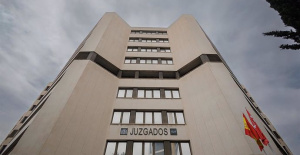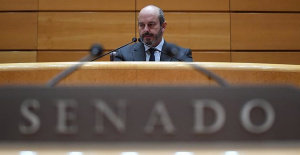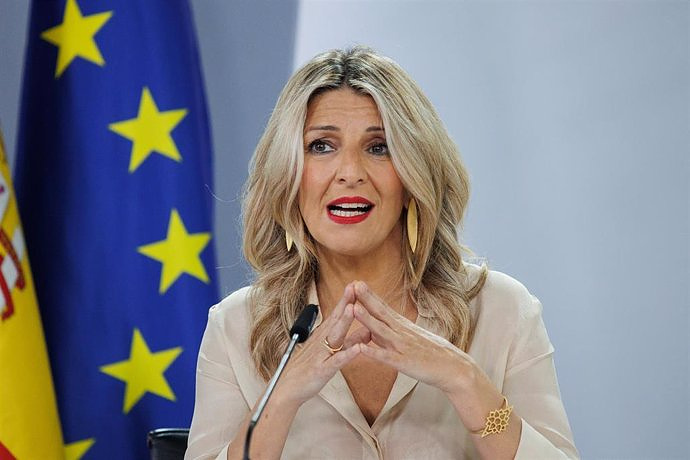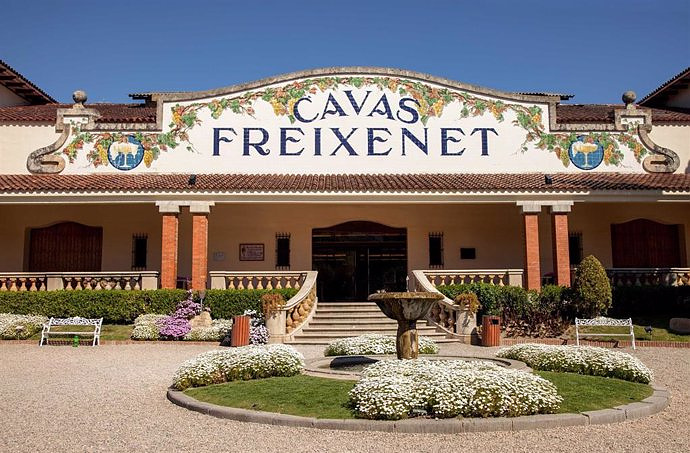Thus, he refutes the thesis that they installed a Trojan horse in the terminal of the former head of Internal Affairs
MADRID, 23 Nov. (EUROPA PRESS) -
The former operational deputy director of the National Police Eugenio Pino pointed out this Wednesday that although it was initially believed that a policeman belonging to Internal Affairs was the one who leaked to journalists the meeting between the CNI and Internal Affairs in October 2014, later the The person in charge of that department, Marcelino Martín-Blas, told him that perhaps he left an open call on the telephone and that this could be the means by which it was recorded.
This has been explained during his statement as a witness in the trial held at the Provincial Court of Madrid against Villarejo, in which he is accused of ordering to record and broadcast a meeting between agents of the National Police and the National Intelligence Center ( CNI) on the investigation into Francisco Nicolás Gómez Iglesias, known as 'El Pequeño Nicolás'.
This version clashes head-on with what Martín-Blas said yesterday, since he said that he did not receive any calls during the meeting but that a Trojan horse was installed on his cell phone, which was what made it possible for them to record the conversation with CNI agents.
During the session on Wednesday, both Pino and the Internal Affairs inspector in charge of the investigation of Gómez Iglesias, Rubén Eladio López, testified. The interrogations have revolved mainly around the recording of that meeting, but they have derived -thanks to the interrogations of the defenses- to the quarrels that existed between Villarejo himself and Martín-Blas - staunch enemies, Pino has said-, the so-called war of commissars.
In his statement, Pino stressed, contrary to what was stated yesterday by Martín-Blas, that it was he who asked him to carry out the investigation related to 'El Pequeño Nicolás' after the then Secretary of State for Commerce Jaime García -Legaz told him that "there was a guy" who was coercing him. "He liked the aunts," recalled Pino de García-Legaz.
Although Pino initially did not want to give him the investigation, after being informed by him that a municipal police officer was involved, he relented and left him in control of the case.
In line, one of the accusations has brought up the "paternal anger" that Martín-Blas threw at Gómez Iglesias over the phone after learning that he was coercing García-Legaz. In this regard, Pino explained that the former head of Internal Affairs told him that the CNI had listened to that conversation --it is understood that by tapping the phone of one of the two interlocutors-- and that they wanted him to handle that matter because "they had lost of the hands".
Asked by several of the parties about the meeting with the CNI that took place on October 20, 2014 after the arrest of Gómez Iglesias and which was later leaked to the media, he stressed that this and other meetings were held behind his back and that he had knowledge of them later, so it is understood that he could not in any case speak about them with the commissioner José Manuel Villarejo.
Thus, he has indicated that nothing was transmitted to Villarejo from the DAO about the investigation into 'El Pequeño Nicolás' or that this meeting was going to be held, something that would cast doubt on how the person under investigation could have found out about it to perpetrate it. its recording and subsequent dissemination in a medium owned by it, Sensitive Information.
Regarding the investigation they are carrying out to find out how it was possible for the Internal Affairs meeting with the CNI to be recorded, Pino explained that at first it was decided to fire a police officer on suspicion of Martín-Blas of being the one who captured it. , but it was reinstated immediately after the former head of Internal Affairs said that it was also possible that "he might have left the phone open." "Well, we're fresh, Marcelino!" He remembers that he snapped at him after warning that he "was not a champion of technique."
This thesis clashes with what was stated this Tuesday by Martín-Blas, who did not say that they had called him and that he left the phone without hanging up, but rather that his phone was infected by a Trojan after an incoming call from journalist Carlos Mier that same day which, furthermore, was not registered.
López, who was also at the meeting with the CNI, has maintained that the scientific police report on the recording concluded that it had been through a telephone channel, and a microphone or remote-controlled listening from outside was ruled out.
In addition, it has indicated that after examining the telephones of the attendees (the police officers voluntarily handed over their terminals) they determined that the person who had received a call during the meeting on October 20 was Martín-Blas. "He was the only one who had the mobile phone," he said, to later recall that he was made to leave his terminal outside the office.
In line, he has indicated that the investigation shows that the call received on Martín-Blas' iPhone 4 lasted about 13 minutes and came from the telephone of the investigated journalist, who worked for a media outlet owned by Villarejo.
Rubén Eladio López has defended, as his former boss did yesterday, that Martín-Blas' mobile phone was "a zombie phone" infected by a 'malware', a Trojan horse that activated it to record remotely.
The Seventh Section of the Provincial Court of Madrid judges both Villarejo and his wife, Gemma Alcalá, and the journalist Carlos Mier for an alleged crime of discovery and disclosure of secrets. The Prosecutor's Office requests a four-year prison sentence for the commissioner, while for his wife and Mier they request three years in prison, considering that they acted as necessary collaborators. The State Attorney requested the same sentences for the same crimes.

 Exploring Cardano: Inner Workings and Advantages of this Cryptocurrency
Exploring Cardano: Inner Workings and Advantages of this Cryptocurrency Seville.- Economy.- Innova.- STSA inaugurates its new painting and sealing hangar in San Pablo, for 18 million
Seville.- Economy.- Innova.- STSA inaugurates its new painting and sealing hangar in San Pablo, for 18 million Innova.- More than 300 volunteers join the Andalucía Compromiso Digital network in one month to facilitate access to ICT
Innova.- More than 300 volunteers join the Andalucía Compromiso Digital network in one month to facilitate access to ICT Innova.-AMP.- Ayesa acquires 51% of Sadiel, which will create new technological engineering products and expand markets
Innova.-AMP.- Ayesa acquires 51% of Sadiel, which will create new technological engineering products and expand markets The judge who admitted the complaint of Clean Hands against Begoña Gómez interrogates two media officials this Friday
The judge who admitted the complaint of Clean Hands against Begoña Gómez interrogates two media officials this Friday Thousands of people in Palma demand to defend Catalan against the "involutionary policies" of "a fanatical minority"
Thousands of people in Palma demand to defend Catalan against the "involutionary policies" of "a fanatical minority" Menotti, maestro of Argentine football since the 1978 World Cup, dies
Menotti, maestro of Argentine football since the 1978 World Cup, dies The amnesty faces its final stretch in the Senate with the question of whether it will be voted this week or after the Catalan elections.
The amnesty faces its final stretch in the Senate with the question of whether it will be voted this week or after the Catalan elections. How Blockchain in being used to shape the future
How Blockchain in being used to shape the future Not just BTC and ETH: Here Are Some More Interesting Coins Worth Focusing on
Not just BTC and ETH: Here Are Some More Interesting Coins Worth Focusing on A sensor system obtains the fingerprint of essential oils and detects if they have been adulterated
A sensor system obtains the fingerprint of essential oils and detects if they have been adulterated Faraday UPV presents the 'Origin' rocket to exceed 10 km of flight: "It is the beginning of the journey to space"
Faraday UPV presents the 'Origin' rocket to exceed 10 km of flight: "It is the beginning of the journey to space" The Generalitat calls for aid worth 4 million to promote innovation projects in municipalities
The Generalitat calls for aid worth 4 million to promote innovation projects in municipalities UPV students design an app that helps improve the ventilation of homes in the face of high temperatures
UPV students design an app that helps improve the ventilation of homes in the face of high temperatures A million people demonstrate in France against Macron's pension reform
A million people demonstrate in France against Macron's pension reform Russia launches several missiles against "critical infrastructure" in the city of Zaporizhia
Russia launches several missiles against "critical infrastructure" in the city of Zaporizhia A "procession" remembers the dead of the Calabria shipwreck as bodies continue to wash up on the shore
A "procession" remembers the dead of the Calabria shipwreck as bodies continue to wash up on the shore Prison sentences handed down for three prominent Hong Kong pro-democracy activists
Prison sentences handed down for three prominent Hong Kong pro-democracy activists ETH continues to leave trading platforms, Ethereum balance on exchanges lowest in 3 years
ETH continues to leave trading platforms, Ethereum balance on exchanges lowest in 3 years Investors invest $450 million in Consensys, Ethereum incubator now valued at $7 billion
Investors invest $450 million in Consensys, Ethereum incubator now valued at $7 billion Alchemy Integrates Ethereum L2 Product Starknet to Enhance Web3 Scalability at a Price 100x Lower Than L1 Fees
Alchemy Integrates Ethereum L2 Product Starknet to Enhance Web3 Scalability at a Price 100x Lower Than L1 Fees Mining Report: Bitcoin's Electricity Consumption Declines by 25% in Q1 2022
Mining Report: Bitcoin's Electricity Consumption Declines by 25% in Q1 2022 Oil-to-Bitcoin Mining Firm Crusoe Energy Systems Raised $505 Million
Oil-to-Bitcoin Mining Firm Crusoe Energy Systems Raised $505 Million Microbt reveals the latest Bitcoin mining rigs -- Machines produce up to 126 TH/s with custom 5nm chip design
Microbt reveals the latest Bitcoin mining rigs -- Machines produce up to 126 TH/s with custom 5nm chip design Bitcoin's Mining Difficulty Hits a Lifetime High, With More Than 90% of BTC Supply Issued
Bitcoin's Mining Difficulty Hits a Lifetime High, With More Than 90% of BTC Supply Issued The Biggest Movers are Near, EOS, and RUNE during Friday's Selloff
The Biggest Movers are Near, EOS, and RUNE during Friday's Selloff Global Markets Spooked by a Hawkish Fed and Covid, Stocks and Crypto Gain After Musk Buys Twitter
Global Markets Spooked by a Hawkish Fed and Covid, Stocks and Crypto Gain After Musk Buys Twitter Bitso to offset carbon emissions from the Trading Platform's ERC20, ETH, and BTC Transactions
Bitso to offset carbon emissions from the Trading Platform's ERC20, ETH, and BTC Transactions Draftkings Announces 2022 College Hoops NFT Selection for March Madness
Draftkings Announces 2022 College Hoops NFT Selection for March Madness
























